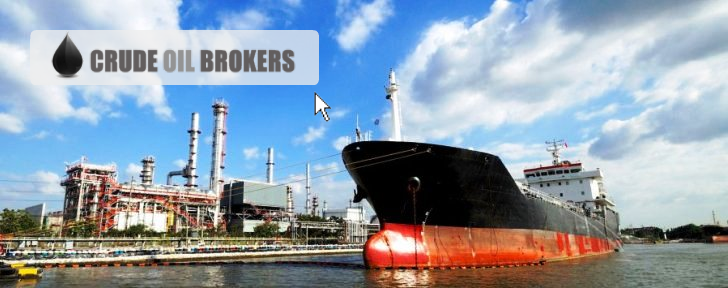Historically, Russia-Turkey natural gas relations started with the Blue Stream gas pipeline in 1997. On Dec. 15, 1997, Russia and Turkey signed an inter-governmental agreement. Under this agreement Gazprom and Botaş, Turkey’s state-owned crude oil and natural gas pipelines and trading company, inked a contract stipulating that 365 billion cubic meters of gas would be supplied to Turkey via the Blue Stream for over 25 years.
The Blue Stream gas pipeline is designed to deliver Russian natural gas to Turkey across the Black Sea bypassing third countries. The Blue Stream supplements the gas transmission corridor running from Russia to Turkey via Ukraine, Moldova, Romania and Bulgaria. The pipeline was designed to sell natural gas from the production in Russia’s Izonobilye area to Turkey. It was to supply 16 billion cubic meters (bcm) per year through the 1,289 kilometer-long pipeline covering 396 km in the Russian Federation, 392 km under the Black Sea and 501 km between Samsun and Ankara after reaching Turkey’s Samsun coast. From the first gas supplied in 2003 up to 2015, the Blue Stream supplied over 120 bcm.
According to the Turkish Ministry of Energy, Russia supplied 60 to 65 percent of Turkey’s natural gas and 12 percent of its oil. Additionally in 2014, Turkey was the second most dependent customer of Gazprom after Germany with 27.3 billion cubic meters of gas consumption and almost 18 percent share in the company’s total gas supply in the European market. Trade between Ankara and Gazprom has run smoothly without any payment or debt problem apart from the gas price negotiation issue.
Moreover, despite Russia’s decision to halve the capacity of the Turkish Stream from 64 bcm to 32 bcm, Turkey still remains a favorite and cherished consumer, as Russia aims to increase its share in the Turkish market. Gazprom’s CEO Alexi Miller told Russian News Agency Sputnik on Oct. 7 that “it [Turkish Stream] does not include talks on concrete details concerning the capacity of the pipeline or schedules for the project implementation, but work on the text of the agreement is underway and it is not influenced by any political factors.”
Turkey’s former Energy Minister Taner Yildiz also said on Oct. 10 that “Gazprom and other Russian companies’ supplies won’t be affected by political tension between the two countries. Turkey pays its debts to Gazprom on time and with the price that was negotiated.”
Gazprom has controversial relations with Ukraine, Poland and Belarus due to Russia’s high gas price demands. Ukraine is one of the countries which not only has political strife with Russia but has also experienced gas cuts from Russia due to the country’s inability to pay its debts. Gazprom cut off Ukrainian gas firstly in 2006 after the company changed its pricing policy and stopped gas price subsidies given to former Soviet Union states. Prior to the company raising its prices for all post Soviet Union states, Ukraine paid below $50 per 1000 m³ - a fraction compared to the $290 per 1000 m³ paid by Germany. In 2004, Gazprom announced that it would abandon subsidies to these states and would introduce higher gas pricing from the beginning of 2006. However, the Ukrainian party rejected this gas price hike which was equivalent to prices charged for Europe. The crisis subsided after the two parties agreed on acceptable terms for Ukraine to repay Russia for past payments and for Russia to supply gas.
A second dispute erupted in 2009 after the agreement expired on Dec. 31 2008. The two sides failed to agree a price again in a new contract for Russian gas supply to Ukraine and a tariff for the transit of Russian gas to Europe. Russian exports to Ukraine were cut off on Jan.1, 2009. Exports to 16 EU member states and Moldova were drastically reduced on Jan. 6 and were cut completely from Jan. 7 resulting in far-reaching consequences. Russia’s reputation as a supplier to Europe and Ukraine’s reputation as a transit country seriously suffered. European consumers’ efforts to diversify away from Russia, which were previously discussed but not acted on, consequently intensified. These two crises between Gazprom and Ukraine pushed Gazprom to create alternative supply lines so Russian gas could reach European markets. This resulted in the Nord Stream pipeline becoming operational in 2011 and the abandonment of the South Stream project last year. The gas price issue was also the source of discord between Russian, Belarus and Poland, but these issues were resolved and did not escalate to such a level as was seen in Ukraine.
Therefore, although Gazprom has very close relations with Kremlin, reshaped in the Putin era, Gazprom is an energy company which aims to increase its market share and supply rates. If Gazprom’s consumers pay their debts on time, the company will continue gas supplies, without affecting political matters of contention between Russia and Gazprom’s consumers. The Baltic States is an example of this. After the Soviet Union’s collapse, the Baltic States became European Union members and limited their economic and political relations with Russia. Despite the ensuing damage to Russia’s economy, there have not been any gas supply problems between these states and Gazprom.
To sum up, the announcement of the Turkish Stream project last year is evidence of Russia-Turkey energy relations development dynamics with Russia’s wish to develop relations further. Gazprom has supplied gas to Turkey since 2003 through the Blue Stream Pipeline while Turkey has remained a notable and reliable consumer of Gazprom since then with no debts to complicate relations.
The gas issues between Russia and other consumers and transit states have been based on unpaid debts or price disputes. Although Gazprom was operating on its own business code of ethics exercising its right to cut gas when debts were unpaid, the company’s public image became tarnished in Europe. This strategy led to the EU’s decision to diversify its suppliers and decrease its dependency on Russia to avoid a similar crisis to Ukraine. Therefore, if Gazprom cuts Turkey’s gas because of Turkey-Russia tension, the company’s image will be irrevocably damaged in Turkey and in European markets as well.
Secondly, the future of the Turkish Stream will become questionable if there is a possibility of cutting gas through Turkey as the alternative transit country to Ukraine. Such a step will also hurt Gazprom’s image, as it creates the perception that problems originate from Gazprom and not from transit states.
Lastly, Turkey’s gas consumption is rising year on year which means Gazprom is making substantial profits in the Turkish market. Gazprom’s own statistics indicate that Turkey is an indispensable market for the company’s profit margin. Therefore, although Ankara’s and Moscow’s relations are occasionally tense, to cut Turkey’s gas due to political motivation would be a remote possibility and inconsistent with the company’s past decisions.
This article by Mühdan Sağlam originally appeared at Anadolu Ajansı. Republished with permission.
Energy Dynamics with Turkey-Russia’s Changing Relations
 Reviewed by Crude Oil Brokers
on
10:24
Rating:
Reviewed by Crude Oil Brokers
on
10:24
Rating:
 Reviewed by Crude Oil Brokers
on
10:24
Rating:
Reviewed by Crude Oil Brokers
on
10:24
Rating:






No comments:
Post a Comment